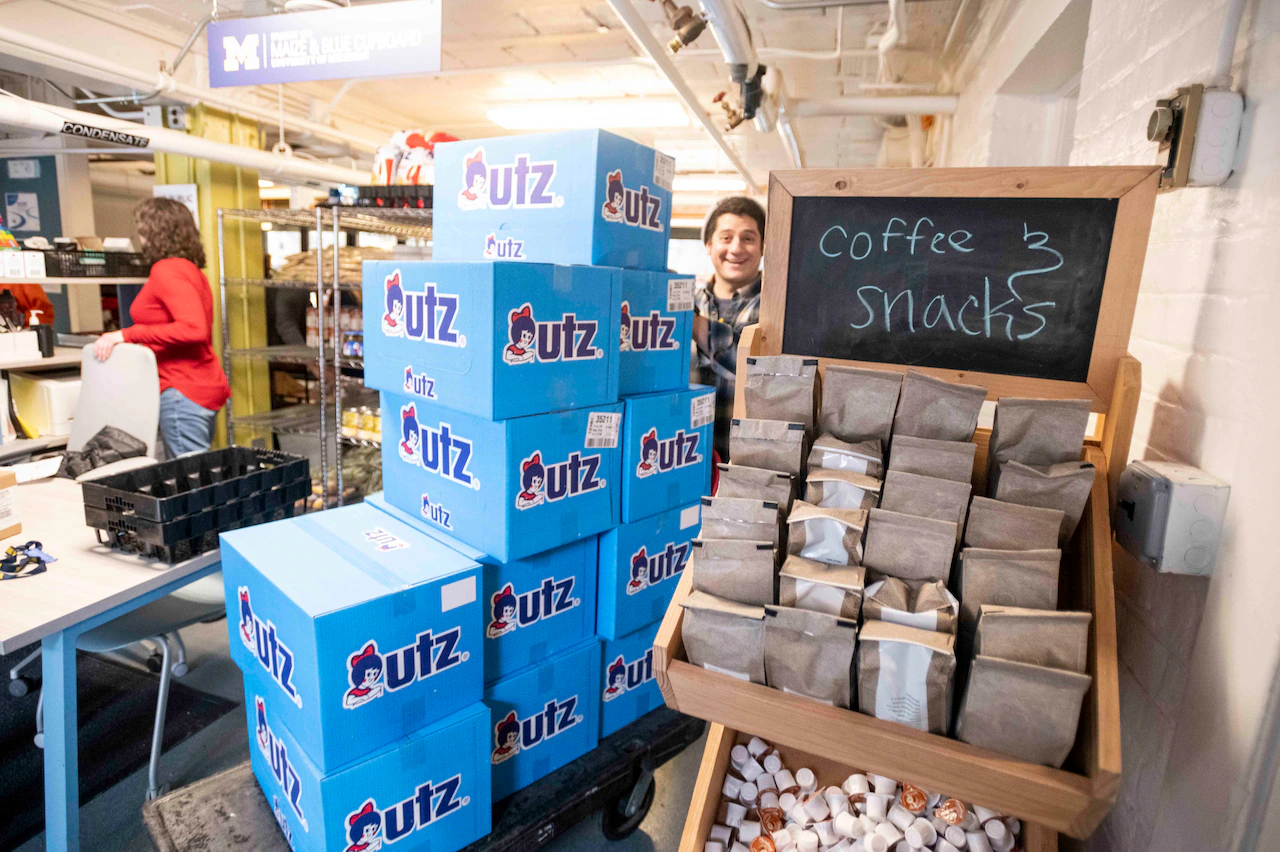Copyright M Live Michigan

WASHTENAW COUNTY, MI — Colton Ray has worked at the Swoop’s Food Pantry on the Eastern Michigan University campus for over four years. He’s bracing for more visitors than he’s ever seen. The second-year graduate student at Eastern Michigan University anticipates an influx of students visiting the food pantry in November once the forthcoming federal food assistance delay takes effect. “I hope that they do seek out the pantry as a resource for them to get through this time,” Ray, 25, of Whitmore Lake, said. Swoop’s is not the only pantry in Washtenaw County expecting to see a lot of foot traffic in November amid the upcoming pause to benefits from the Supplemental Nutrition Assistance Program (SNAP). The U.S. Department of Agriculture Food and Nutrition Service ordered Michigan on Oct. 25 to pause SNAP benefits on Nov. 1 due to the ongoing federal government shutdown. Roughly 1.4 million Michigan residents, or 13% of households in the state, are anticipated to lose access to food assistance programs as a shutdown of the federal government continues. Food assistance programs, which are administered by states, use federal dollars to provide food assistance to those with lower incomes. Average eligible households in Michigan receive $335 per month in SNAP benefits. Roughly half have a person with a disability in the households and 43% have children. Benefits, which are loaded onto an electronic benefit transfer card, can be used to purchase food at grocery stores, farmers markets and other stores. Read more: Food insecurity rate rises to 14% in Washtenaw County, new study shows Ray said the forthcoming pause is contributing to stress and insecurity for households who receive food assistance benefits. About 8% of EMU students who visit Swoop’s receive SNAP benefits, according to Ray, and the pantry anticipates those students will visit it more frequently. He also expects new students seeking out resources to visit the pantry for the first time but said the pantry is prepared for the influx. “We receive two truck orders a week from Food Gatherers, and they really help us keep the shelves stocked,” Ray said. Food Gatherers is a Washtenaw County-based food rescue and bank. While Swoop’s receives monetary donations, Ray anticipates the pantry “needing all hands on deck” once the SNAP pause takes effect. “We’ve already started reaching out to campus and community partners to see if they can help volunteer so that we can process and stock donations,” Ray said. He also said Swoop’s will host their annual holiday harvest event for pantry users from 4 to 6 p.m. Thursday, Nov. 20. “I hope that there will be an increase in visibility that will lead to an increase in monetary donations so that we’re able to purchase more items at bulk discounted rates,” Ray said. Clarence Jennings, vice president of student services at Washtenaw Community College, said the community college is prepared to help students through its Emergency Food Cupboard. “We’re going to assist students who are in need and we’re going to meet their need until this shutdown and then the SNAP benefits situation is resolved,” Jennings said. WCC will increase the number of times that students can utilize its food bank beginning Nov. 3, according to Jennings. Jennings said the WCC food pantry has enough supplies for students ahead of the November pause. He said the community college received a grant from the state of Michigan to assist students facing barriers to completing school. The grant allows the college to expand its food pantry options, plus the number of times students can use the food pantry, Jennings said. Jennings hopes that the government shutdown will end soon and recognizes food insecurity can be an educational barrier. “We want to make sure that we’re supporting students in and out of the classroom,” Jennings said. “This shutdown is now going to impact individuals who need the assistance.” Jennings wrote in an Oct. 30 email that additional resources, such as travel assistance and personal hygiene items, may be available for students. “These resources are designed to reduce barriers to student success and help students stay focused on their education,” Jennings wrote. Kay Jarvis, director of public affairs at the University of Michigan, wrote about the necessity of the Maize and Blue Cupboard, the university’s main food pantry on campus. “The Maize and Blue Cupboard is a critical year-round resource to help address food insecurity across the U-M campus community,” Jarvis wrote. “We remain committed to helping meet our community’s needs through the generosity of our partners and donors.”



